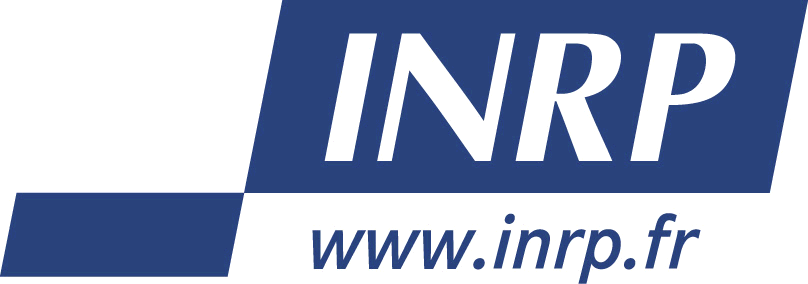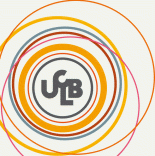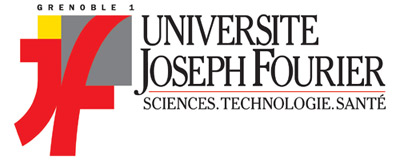Journée scientifique PPF "Apprendre avec les TICE", INRP, Lyon
28 septembre 2009
contact : samira.drissi@ens-lyon.fr
PROGRAMME
9h30 Introduction aux thèmes de recherches et actions correspondantes (Alain Mille) (15’)
9h45 Conférenciers invités :
Wise&Munro Learning Research, Den Haag, NL
Title: The KP-Lab experience: integration issues in a European project with 25 partners
KP-Lab is an integrated project, funded by the European Commission, for a period of 5 years to develop technology which supports knowledge creation, that is, collaborative construction of knowledge artifacts, in learning contexts as well as in professional practice. Integrated projects are the flagships of the European Commission, and have to show that our research can really make a difference, for education and innovation of practice.
Currently, after 3.5 years, the project is in a deep crisis, caused by deep and often irreparable differences in viewpoints between various stakeholders in the project: researchers and technicians, national research traditions, scientific disciplines, learning and research paradigms, educational systems, local interests of partners, overall management, scientific management, cultural differences in communication styles, the role of artificial intelligence, and, finally, the role of reviewers and the European officer in evaluating and managing the project.
In this contribution, I will try and explain the theoretical background of the project, the main objectives and the approach for developing a system and research. Also, the goal of integrated projects from an EC perspective will be discussed. Then, I will address various types of differences in the project and its management, and the various manners in which the driving forces of the project have been frustrated (or facilitated).
I will try and rise above the level of anecdote and apply Allwood’s maxim of ethical consideration to some types of conflicts, to arrive at conclusions and recommendations for future collaboration in Europe.
Yannis Dimitriadis , Professor of telematics Engineering
(http://titan.tel.uva.es/wikis/yannis/images/1/1b/Dimitriadis_cv_nsf_20090206.doc),
and director of the interdisciplinary group GSIC/EMIC
(http://gsic.tel.uva.es/index.php?lang=en)
Title: Rapid and flexible collaborative knowledge construction with Group Scribbles
Short abstract: This talk aims to present a review of an international joint research work on GroupScribbles (groupscribbles.sri.com/) during the last 3 years. This tool aims to provide support for lightweight, flexible coordination that may allow rapid collaborative knowledge construction in wireless classes. Besides the design principles and tensions, the talk will present some experiences that were carried out in Spain, Singapore and USA, hat focus on the affordances of the tool with respect to improvisation and flexibility, as well as some issues related to its adoption by teachers.
11h30 Pause
11h45 Table ronde sur les questions de recherche du PPF :
- Jacques Wallet, Université de Rouen.
- Alain Mille PPF Apprentice, Université de Lyon
- Luc Trouche, Eductice, INRP Lyon
- Jerry Andriessen, Department of Pedagogical and Educational Sciences, Utrecht University.
- Yannis Dimitriadis, Professor of telematics Engineering and director of the interdisciplinary group GSIC/EMIC.
12h45 Déjeuner
14h30 Exposés scientifiques PPF (25 minutes + 10 minutes questions)
Christine Develotte
Aspects cognitifs et relationnels de l'enseignement/apprentissage en ligne : analyses pluri-disciplinaires.
Nous passerons d’abord en revue les différentes perspectives de recherche dans lesquelles les chercheurs du groupe sur la Professionnalisation des Métiers liés aux Tice (Prométhée) ont travaillé depuis 2 ans. Puis nous illustrerons notre propos par l’exemple d’une recherche conduite, en 2008-2009, avec Nicolas Guichon et Caroline Vincent. Dans un environnement multimodal (Skype) nous avons étudié l’utilisation des différents outils de communication (textuel, audio, visio) et plus précisément l’utilisation de la webcam par cinq futurs enseignants de français langue étrangère, à travers une même tâche, dans un cours de formation à l’enseignement en ligne synchrone dispensé dans M2 de Lyon 2.
Valérie Emin & Jean-Philippe Pernin
ScenEdit : un environnement graphique d'aide à la scénarisation pédagogique
Cette présentation concerne ScenEdit, un environnement graphique de conception et d’édition de scénarios pédagogiques réalisé en collaboration avec des enseignants du secondaire. Cet environnement s’appuie sur le modèle conceptuel ISiS (Intentions-Strategies-interactional Situations), élaboré pour structurer la démarche de conception de scénarios pédagogiques utilisant les technologies numériques. Ce modèle orienté par les intentions permet l’expression et la formalisation des intentions et des stratégies du concepteur. Il a également pour but de favoriser la réutilisation et le partage de scénarios pédagogiques entre concepteurs. Nous présenterons les principaux concepts du modèle et un exemple de scénario pour illustrer notre modèle à l'aide de l’environnement ScenEdit dont nous présenterons les fonctionnalités et caractéristiques principales.
16h30 Discussion, clôture (Alain Mille)




